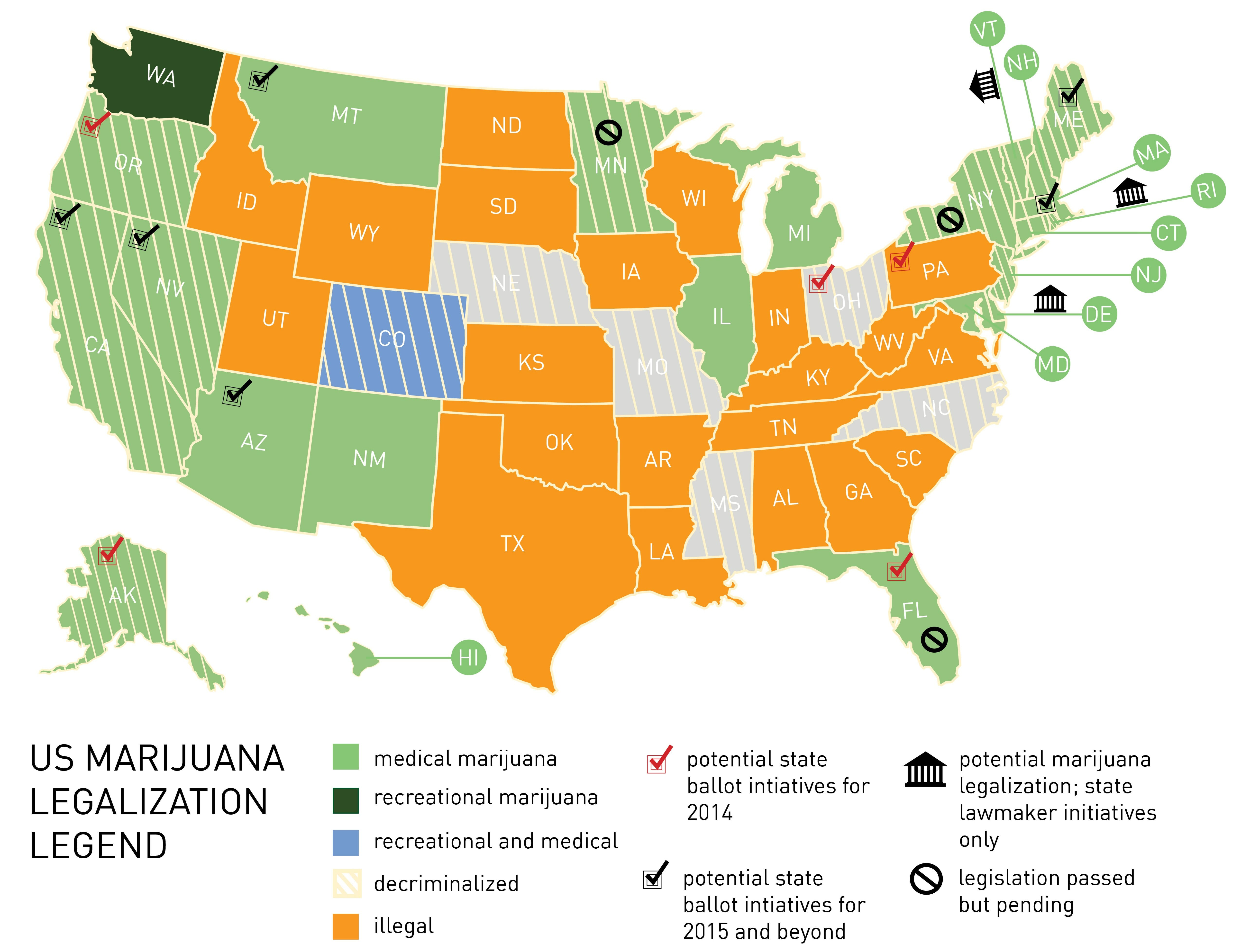Understanding Marijuana Laws in the United States

History of Marijuana Laws in the United States
Marijuana was first criminalized at the federal level in 1937 with the passage of the Marihuana Tax Act. This law effectively banned the use and distribution of marijuana, including for medical purposes. In the decades that followed, many states followed suit and criminalized marijuana at the state level as well.
The tide began to turn in the 1990s with the passage of California's Compassionate Use Act, which legalized medical marijuana in the state. Since then, many other states have followed suit and legalized medical marijuana, while others have gone further and legalized it for recreational use as well.
Current Status of Marijuana Laws in the United States
As of 2021, 36 states and the District of Columbia have legalized medical marijuana, while 15 states and the District of Columbia have legalized recreational marijuana. However, marijuana remains illegal at the federal level, which can cause confusion and legal issues for individuals and businesses operating in the industry.
The federal government has taken a hands-off approach to enforcing marijuana laws in states where it has been legalized, but this could change at any time. In addition, many individuals with prior marijuana-related convictions still face legal and social consequences, even in states where it is now legal.
The Pros and Cons of Marijuana Legalization
Pros:
- Medical benefits for individuals with certain conditions
- Reduced criminalization and incarceration for non-violent drug offenses
- New job opportunities and tax revenue for states
- Potentially reduced use of more harmful drugs
Cons:
- Potential for increased use among minors
- Increased risk of impaired driving accidents
- Unknown long-term health effects
- Difficulties in regulating and enforcing laws
Future Changes to Marijuana Laws in the United States
It is difficult to predict the future of marijuana laws in the United States, but there are several potential changes on the horizon. The most significant would be federal legalization, which would remove the legal confusion and allow for greater research and regulation of the industry.
In addition, several states are considering legalization in the near future, which could shift the balance even further in favor of legalization. However, there is also the possibility of a backlash against legalization, particularly if negative consequences begin to emerge.
FAQs
Q: Is marijuana legal in all states?
A: No, marijuana is only legal in certain states for medical and/or recreational purposes. It remains illegal at the federal level.
Q: Can I be fired for using marijuana in a legal state?
A: Yes, employers can still enforce drug-free workplace policies and terminate employees for marijuana use, even if it is legal in their state.
Q: Can I travel with marijuana between legal states?
A: No, it is illegal to transport marijuana across state lines, even between legal states.
Q: Can I grow marijuana at home if it is legal in my state?
A: It depends on the state's laws. Some states allow for home cultivation, while others do not.
Conclusion
Marijuana laws in the United States are complex and constantly evolving. While many states have legalized its use for medical and/or recreational purposes, it remains illegal at the federal level. The pros and cons of legalization are still being debated, and the future of marijuana laws in the United States is uncertain.
